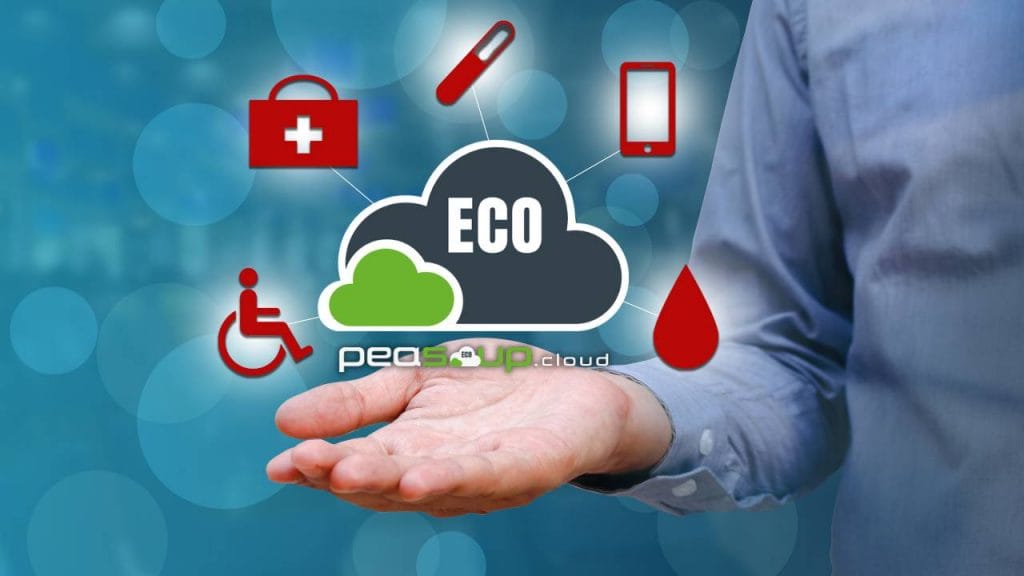Empowering The Health Sector to Achieve Green Goals Through Sustainability in Data Centres and Cloud Computing
In the quest for sustainability, data centres and cloud computing have emerged as powerful allies for organisations across various sectors. Among them, health organisations face unique challenges in achieving their sustainability goals due to the enormous computational demands of healthcare operations. However, by leveraging the benefits of cloud computing and eco-friendly data centres, the health sector can significantly reduce its environmental impact while enhancing efficiency and performance. One innovative technology at the forefront of this movement is liquid immersion cooling, which offers unprecedented energy efficiency and sustainability benefits.
The Power of Cloud Computing
Cloud computing has changed the way organisations manage and process data, allowing them to scale their operations efficiently while at the same time reducing energy consumption. By leveraging cloud services, health institutions such as hospitals can transfer their data and computational processes to remote data centres, therefore reducing the need for on-premises infrastructure. This significantly reduces the energy requirements of individual health facilities, as cloud providers can optimise their data centres for energy efficiency and utilise advanced cooling techniques.
Eco-Friendly Data Centres
To support sustainability efforts, data centres are increasingly using eco-friendly practices. These practices include the use of renewable energy sources, energy-efficient hardware, and advanced cooling systems. Traditional air-based cooling methods in data centres are known to consume substantial amounts of electricity, but with the adoption of eco-friendly data centres capabilities such as liquid immersion cooling energy efficiency, and environmental impact are adequately addressed.
Liquid Immersion Cooling: A Sustainable Solution
Liquid immersion cooling is a cutting-edge cooling technique that aims at replacing traditional air cooling methods in data centres. It involves submerging server components, such as processors and memory, directly in a non-conductive liquid. The innovative approach eliminates the need for fans and other power-hungry cooling systems, therefore leading to a significant reduction in energy consumption and allowing data centres to operate more sustainably.
The benefits of liquid immersion cooling are twofold: energy efficiency and space optimisation. By dissipating heat more efficiently, this technique can achieve up to 98% energy efficiency, compared to the 50-70% efficiency of traditional cooling methods. Also, since the fact that liquid immersion cooling eliminates the need for bulky air cooling systems, data centres can optimise their physical space and accommodate more servers within the same footprint, further reducing their environmental impact.
Sustainability Benefits
Health institutions such as hospitals face constant challenges in managing and processing large amounts of sensitive patient data. By leveraging cloud computing and eco-friendly data centres with liquid immersion cooling, they can reach several sustainability benefits:
Reduced Energy Consumption
By transitioning to cloud-based infrastructure, medical facilities can significantly reduce their energy consumption and associated carbon footprint. Cloud providers use energy-efficient data centres that utilise liquid immersion cooling, ensuring that computational processes are conducted with minimal environmental impact.
Improved Performance and Reliability
Cloud computing offers medical facilities access to scalable resources, ensuring uninterrupted availability and high-performance computing capabilities. This allows healthcare professionals to focus on patient care while relying on robust and efficient IT infrastructure.
Cost Savings
Through the adoption of cloud computing and the utilisation of liquid immersion cooling, medical facilities can save a significant amount of money. By eliminating the need for on-site server rooms and reducing energy expenses, healthcare organisations can allocate the saved resources to patient care and research.
Enhanced Data Security
Cloud service providers prioritise data security and implement stringent measures to protect sensitive medical data. Health institutions can leverage their expertise and benefit from advanced security protocols, ensuring compliance with privacy regulations and minimising the risk of data breaches.
Summary
In the pursuit of sustainability, the health sector can adopt the power of cloud computing and eco-friendly data centres. By leveraging the scalability, energy efficiency, and security provided by cloud services, healthcare organisations can reduce their environmental impact while optimising performance and lowering costs. Liquid immersion cooling, a ground-breaking cooling technique, can play a crucial role in driving energy efficiency within data centres, further aiding medical facilities in reaching their sustainability.

